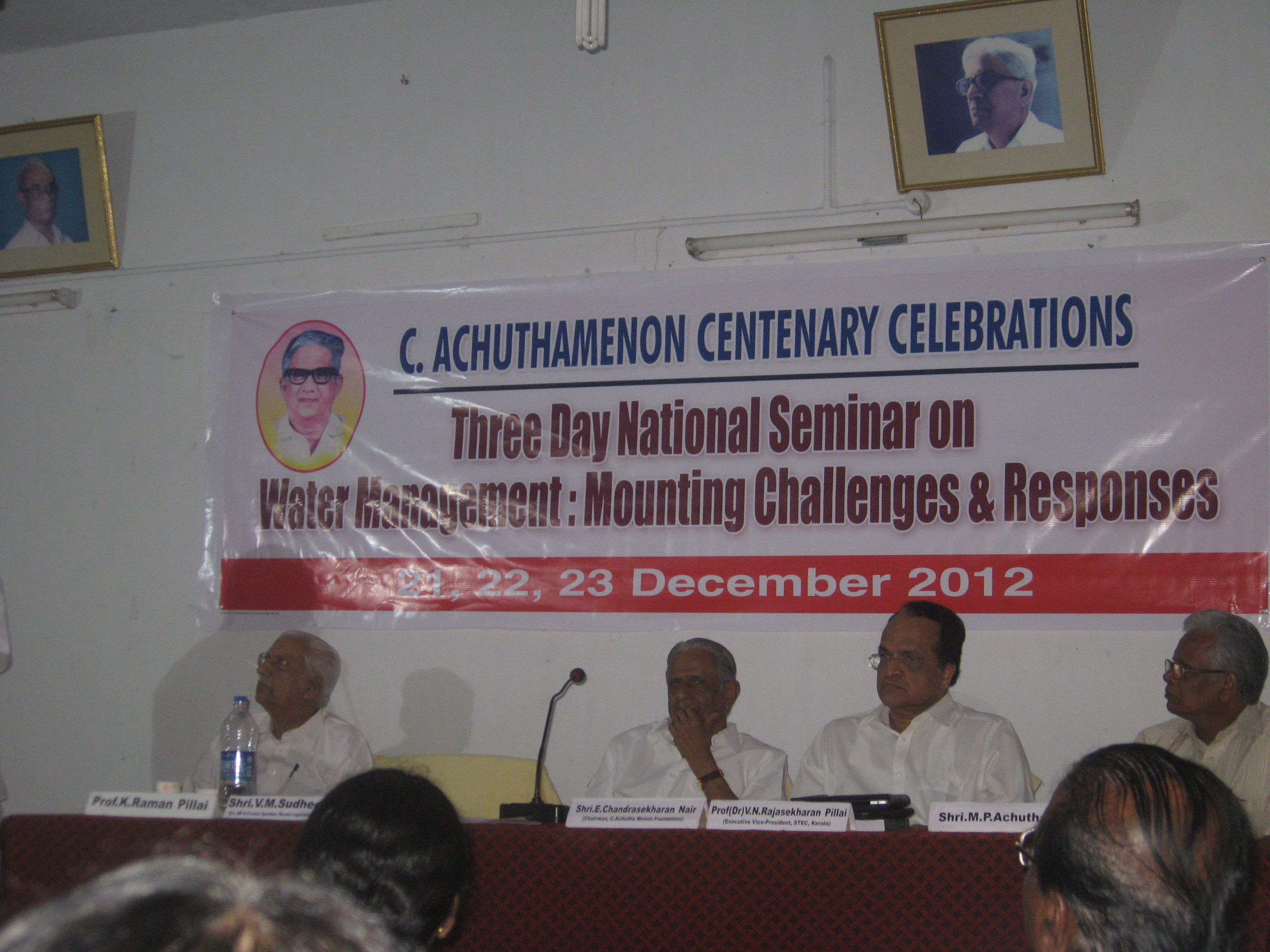Drinking and other Domestic Uses
Traditional household water purification methods practised by rural communities in developing countries - A compilation by the Encyclopedia of Life Support Systems
Posted on 19 Mar, 2013 09:15 PMThis article published in the Encyclopedia of Life Support Systems includes a collation of traditional household water purification methods practised by rural communities in developing countries.
River water quality data by Central Pollution Control Board (2005)
Posted on 19 Mar, 2013 06:41 PMAgainst this backdrop, this document by the Central Pollution Control Board (CPCB) elaborates on the river water quality in India. The Central and State Pollution Control Boards / Pollution Control Committees in Union-Territories of India are responsible for restoration and maintenance of the wholesomeness of aquatic resources.
Sunlight-cleaned water: Research papers on the advantages, economics and safety issues of treating water through solar disinfection (SODIS)
Posted on 16 Mar, 2013 06:40 PMIn this technique, transparent containers are filled with contaminated water and placed in direct sunlight for at least 6 h, after which time it becomes safe to drink. This simple, straightforward disinfection method that utilises the abundant, freely available sunlight is low cost, easy to use and sustainable.
The story of Dhanushkodi, a cyclone hit town, where reality coexists with myths, mysteries and miracles
Posted on 16 Mar, 2013 08:55 AMA visit to Dhanushkodi makes one wonder as to how such peace and tranquility can at times, also unleash such fury and destruction, but then life goes on, as does for the small section of the fisherfolk who continue to inhabit the island and depend on it for their basic needs of food and drinking water, which the island continues to provide for them
Water management - Mounting challenges and responses - A report on the three day seminar jointly organised by KSCSTE and C Achutha Menon Foundation, Trivandrum from the 21st to the 23rd December 2012
Posted on 14 Mar, 2013 10:12 PMThis three day national seminar was jointly organised by the Kerala State Council for Science, Technology and Environment (KSCSTE), Thiruvananthapuram, and the C Achutha Menon Foundation (AMF), Thiruvananthapuram, Kerala and included presentations and discussions on a range of water related themes such as water scarcity, water conservation, commercialisation of water, water conflicts and water management.
The seminar aimed at creating awareness and triggering a dialogue among scientists, academicians, researchers, activists, as well as lay people on the emerging challenges related to water resources, water quality and water conservation in the state of Kerala. The seminar was inaugurated by Shri V M Sudheeran, Ex MP and former speaker, while Dr Rajasekaran Pillai, Executive Vice President KSCSTE, delivered the keynote address with the felicitation by Shri M P Achuthan, MP.
The seminar included discussions under five different themes related to water issues that included water scarcity, water conservation, commercialisation of water, water as an new area for conflicts and water management.

The three day seminar on water management at the Achuta Menon Foundation, Trivandrum, Kerala
Bangalore garbage finds dumping place in Mandur: Civic body promises better infrastructure projects in exchange - Roundup of the week’s news (March 4- March 10, 2013)
Posted on 11 Mar, 2013 11:42 PMBangalore garbage finds dumping place in Mandur: Civic body promises better infrastructure projects for communities living there
Water in movies: Exploring the role of water in mainstream media and popular culture
Posted on 11 Mar, 2013 03:20 PMFrom the serious to the absurd, water has featured across a breadth of movies, both in Hollywood and Bollywood.
A source today, scarce tomorrow: Educational videos on global freshwater problems
Posted on 09 Mar, 2013 09:10 AMWhat are the water sources and where is the water utilized ? The short videos below aim to educate us on simple facts of freshwater sources and scarcity....
Manuals for preparation of detailed project report for rural piped water supply schemes by Ministry of Drinking Water and Sanitation
Posted on 08 Mar, 2013 05:33 PMThe works have to done maintaining appropriate standards and quality of the schemes, and ensure their completion in time. The manuals are prepared keeping in mind the activities mentioned in the 12th five year plan.
Uniform drinking water quality monitoring protocol- A document by Ministry of Drinking Water and Sanitation (2013)
Posted on 07 Mar, 2013 08:36 PMThese protocols are suggestive in nature and will be useful for laboratory personnel, water supply engineers and policy makers working in the drinking water sector operating at State, District and Sub-district levels.





